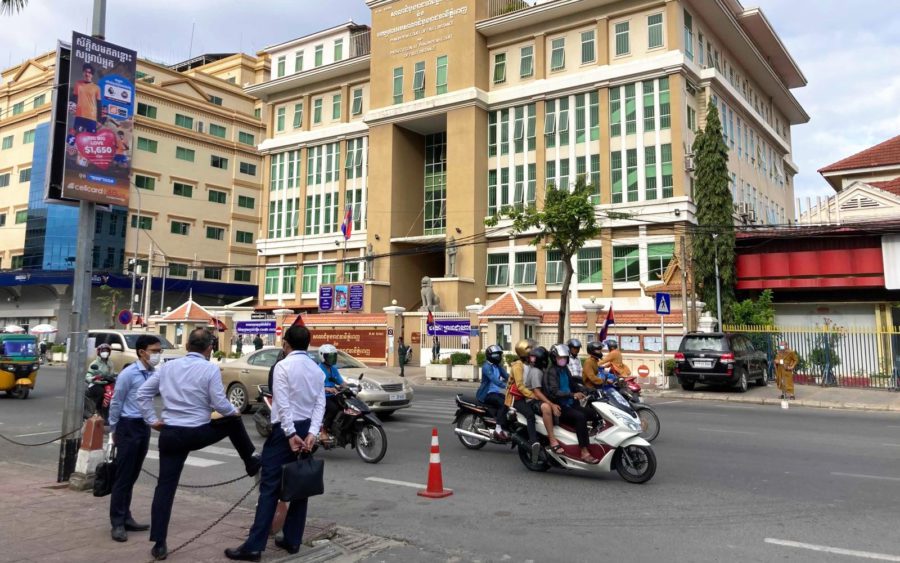The government expects the critical garment sector to see a slowdown this year, with growth forecast to halve, as at least three factories have suspended thousands of workers for a seeming lack of orders.
The Finance Ministry said on Wednesday it expected garment export growth to halve in 2023, from nearly 11% to 5.5%. The ministry was presenting information on the new budget law for 2023 when it made estimates on economic growth this year.
Vongssey Vissoth, a secretary of state of the Finance Ministry, said the ripples from the Ukraine-Russia conflict had dampened economic growth globally, and that demand was expected to decrease from export destinations like the U.S., E.U., China and Asean.
He said the sector was resilient and was weathering loss of trade privileges like the E.U.’s Everything But Arms program. Cambodia lost certain EBA privileges in 2020 after the E.U. bloc determined there were systemic rights violations in the country.
“With or without EBA, we will not die. We still have a resilient export performance,” he said.
Cambodia has only recently started emerging from the economic turmoil caused by the Covid-19 pandemic, which early on heavily impacted a garment sector reliant on imports of raw materials to feed garment and footwear factories.
More than 300,000 workers from 100 factories were suspended in the March and April of 2020, with Prime Minister Hun Sen assuring workers would get 60% of their wages — 40% would be paid by factory owners and 20% by the government.
The World Bank said last month that Cambodia was reliant on exports to the U.S. and E.U., and while exports were strong in the first half of 2022, it was expected to wane later in the year.
This is likely evidenced by the three announcements in recent months of factory closures, affecting thousands of workers in the sector. Union members from Din Han factory in Phnom Penh’s Stung Meanchey commune said last week that their employer started suspending workers starting in November and had so far suspended around 1,170 workers.
At Por Senchey’s T&K factory, around 600 out of 1,000 workers were suspended and placed on partial salaries.
“Frankly speaking, $27 is not enough because the room rental is already $50. What can we do with $27? Even with the full salary, it was already difficult to make a living,” he said.
Additionally, M&V factory in Kampong Chhnang announced last week it was suspending 1,974 out of 3,017 workers on the factory floor. The factory is an H&M supplier.
Kaing Monika, deputy secretary-general of the Textile, Apparel, Footwear & Travel Goods Association in Cambodia, also pointed to the Ukraine war as a reason why exports were expected to dull.
“This crisis has affected the world economy and our exports largely depend on the U.S., E.U., U.K., Canada, and Japan,” he said. “Facing economic difficulties, these importers decrease their demand.”
Back at the press event, Vissoth also said the construction and real estate sectors were expected to make a recovery after being flat last year. He expected the tourism sector to prop up the economy, with the government recently estimating more than 4 million tourists this year, especially after the relaxation of China’s strict Covid-19 measures.
He did point to increasing debt pressure in the construction and real estate sectors. “It could be a problem with the credit crunch to support real estate and construction. But technically, we cannot let these sectors go bankrupt,” he said.
Additional reporting by Meng Kroypunlok and Khut Sokun













